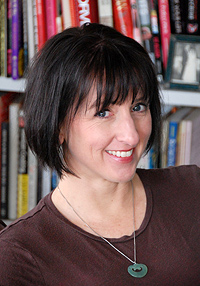A powerful story from my close friend Mr. Akira Yamashita
-------------------------------------------------------------
 The Incomplete Melody
The Incomplete Melody
(c) AKIRA YAMASHITA
I took up the position of Ambassador of Japan to Austria-Hungary in the Fall of 1902. I had lobbied for it and was well connected and the result was not a surprise. Since I had done very well in my previous positions as First Secretary at Moscow and then London, the Emperor graciously agreed to my request for an Ambassadorship of a relatively inconsequential country (for Japan). There was certainly some surprise; had Sugiyama-san taken leave of his senses by specifically asking for the position? It did not matter. I knew what I was doing; it was my life's ambition to be posted in Vienna, where I could explore the history and music of the great composers. And, in particular, trace out a particular tune that had consumed me for years.
But many others were not surprised. My extraordinarily fluent German, my affectations, my knowledge of the history of Prussia - there was something more than mere scholarship and application to account for it. My visage and cultural expression was otherwise Japanese, a result of birth and conditioning. But my heart was German. Japanese classical music left me cold. The music of Mozart, Strauss and Haydn were natural to me and its beauty of greater personal import. Considering that there were then few opportunities in Japan to hear their music, this obsession was striking. As a man in fever, I tossed and turned, grasping for fleeting wisps of musical memories. An avuncular professor taught me to read music and played a few strands of music on his violin. It was enough. Bubbling passions turned to a mania and made it very difficult to pursue a career. Yet I did, striking an uneasy balance between the needs of the head and those of my heart.
I see I have been verbose and have meandered in my discourse. Let me return to my main narrative.
While walking alone in a secluded part of Nogawa Park in Tokyo one summer morning, letting gentle tunes lap at my consciousness, I was suddenly overpowered by a tune of such potency and beauty that I staggered and cried out. The tune was so beautiful, so unearthly, that everything became instantly irrelevant. Like a soft blanket, it enveloped me, refusing to let go, nibbling at my soul, filling it with such fragrance that words cannot describe. It would end abruptly, leaving me in agony. Then it would restart and play again and again and again. It was so rich, and so fantastic that I could have died to actually listen to it being played live just once.
I hurried home and tried my best to write it down, but it was too much for me. I showed what little I could understand to the Professor who tried it out on the violin. But while the resulting melody was certainly lovely, it left me strangely dissatisfied. The Professor understood that I was on the verge of something extraordinary. "All the hints are there; you have tried and failed. I have never heard such wonder and I know it could only have been a fraction of the real thing. Search for it; let your life have meaning."
I became possessed by that half-tune and spent several years manoeuvring to get to Vienna. Like a magnet, my soul pulled in that direction. And finally, as I approached Vienna, the tune seemed louder and louder and started revealing hitherto unnoticed layers and tones.
I was in a fever and went about my diplomatic work in a daze. The duties being light, I used every opportunity to search for that elusive something. From Meldemann Strasse to the inner neighbourhoods, I followed the echoes of that incomplete tune. It must have seemed an odd sight - a Japanese wandering about in Vienna. But I did not care.
It became clear to me that the source was somewhere in Leopoldstadt, an older part of Vienna. Some internal compass made me turn towards that area and it seemed that the tune became fuller and louder whenever I walked towards it. And by and by, over a period of a few weeks, I tracked down the source in the area between Glockengasse and Novaragasse, slowly zeroing in on an old house, just like any other in the row.
It was dusk when I reached the house. The street gaslights flickered and were too weak to etch the house in any detail but I knew that I was there. I knocked on the old door, my heart a-flutter, the melody louder than it had ever been. Was my quest about to be fulfilled?
For the longest time, there was no response.
Then I heard a shuffling and the door opened. A very old lady peered out. She looked at me for several seconds, turned and called out “He has come”, and walked back. It was obvious I was expected.
I walked in, straight into the living room. It was dark with candles placed at a height, casting shifting shadows and trembling light in the room. And in the centre, bathed in the soft light of the candles was Wolfgang Amadeus Mozart, on his death bed.
A silent group of twelve very old men were sitting on chairs in a semi-circle around Mozart. I could only see the tops of their heads, their faces being shrouded in darkness. All had violins in their hands. I bowed. They inclined their heads in response.
"Thank you for coming", said one of them. "We have waited several years for you. We shall now complete the tune for you." And Mozartlifted his hands.
I fell on my knees and bowed my head, my eyes closed.
And then the twelve violins were lifted and played and the room filled with that familiar tune that I had heard only in my head for so many years. But this time, I heard it completely. As that memorized snippet completed its course, the remaining piece burst out and I felt that the heavens had opened out with flowers and colours. I was on a cloud of the softest most beautiful and unnatural music that could have ever been thought of. The volume rose to a crescendo and dipped to a whisper, lakes and streams passed through the room, the greatest of sadness, the heights of ecstasy, tenderness, love, bitterness, loneliness, a merging of all three worlds with excursions into each of them separately.....the devil, God, the planets, the moon - all passed through that room, emerging from those violins.
How beautifully bizarre the scene was - I was at the entrance of a room in which twelve old men were playing the most fantastic music ever conceived, guided by the thoughts of a genius on his death bed.... Time stood still as I lost my senses, completely immersed in the musical flood.
And then I understood. This was the tune that Mozart had left incomplete at the moment of death and thrown into the ether as a strand of memory for some to catch and perhaps complete. For some reason it needed me, a Japanese Ambassador to Austria, to complete the tune merely by my presence. How does one search for logic?
I do not know what happened to me. I think I simply could not bear that unending beauty and became unconscious.
I woke to the morning sun streaming in through the windows. The room was empty. There was no sign of the men and the old lady. There were no candles at the heights as I had thought I had seen. There was no dying Mozart. The front door was gently moving on its hinges.
I walked out of that old house, leaving behind that music, which had been played only once. I had completed my life's purpose.
And the tune vanished from my head, never to return.

















